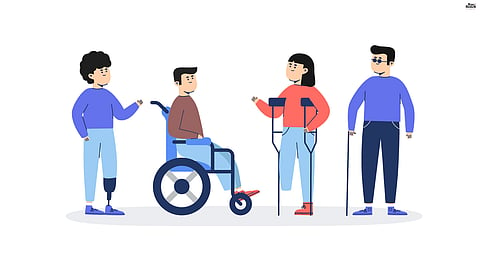
- Latest Legal News
- News
- Dealstreet
- Viewpoint
- Columns
- Interviews
- Law School
- Legal Jobs
- हिंदी
- ಕನ್ನಡ

The Supreme Court on Friday flagged concern that persons with disabilities (PWD) who make the cut-off for general category candidates in public educational or employment opportunities continue to be treated as reserved category candidates [Justice Sunanda Bhandare Foundation v. Union of India].